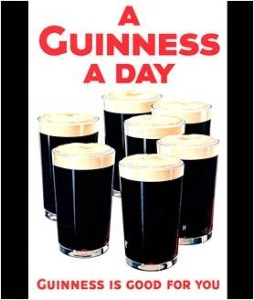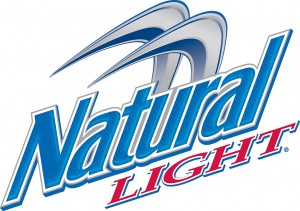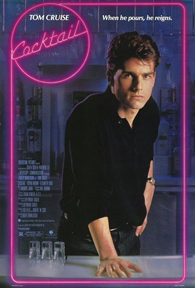Go Forth and Add!
As we have learned from the Chevy Nova, it is important to perform an accurate linguistic screen in all markets where you intend to launch your product. As you may have heard, the Nova was not such a big hit with Spanish-speakers. Translated literally, its name means “star” but when spoken it sounds like “no va” meaning “it doesn’t go.” Oops.
Recently, PepsiCo announced that it is teaming up with Eva Longoria Parker to promote their new campaign, titled “Yo Sumo.” The campaign, inspired by this decade’s census, is to encourage Hispanics, especially the younger generation, to not only be counted numerically, but also share their experiences of how they have contributed to making a difference in the American landscape. The campaign is truly inspiring as it motivates multicultural America to participate not just be another number.
The problem here is this: Yo Sumo is translated literally as “I count,” as in, “I add numbers,” or one plus one is two. This could be interpreted as a “math is fun” campaign. It could also evoke imagery of a certain Japanese style of wrestling.
Unfortunately, the subtle nuances and double entendre of “I count” are lost in translation. Would a better phrase have been “Yo Cuento” as the translational abilities offer a broader range of meaning? Or is leaving it “Yo Sumo” okay, so long as Pepsi imbues the desired meaning? I am left to wonder if a native Spanish-speaker contributed to the brainstorming and ultimate name creation of the campaign. If that’s the case, then perhaps instilling meaning is, indeed, the intention.
No matter what, thankfully, “Yo Sumo” definitely does not mean “it doesn’t go,” so hopefully the initiative will take off!
My Goodness

......................................................................................................................................................................
For 250 years, Guinness has been refreshing thirsty beer-lovers across the world. And, on St. Patrick’s Day, no celebration is complete without this Irish legend.
To many, Guinness is so much more than a beer, it’s an experience of pure joy. Envision the Guinness experience: the request, “Guinness please;” the 119.53 second pour; the cascade; the first sip.
What was developed from humble beginnings has become one of the world’s most successful brands. Its advertising from the 1930s is considered art. Fanatics make pilgrimages to Guinness Storehouse for a pint. Its logo can be found on anything from shirts to hats to toy trucks to cufflinks. In Africa, its ads transitioned into a movie called "Critical Assignment" starring a character of its own creation called Michael Power. And, in 2007 it was estimated that 10 million glasses of Guinness were enjoyed around the world each day.
So, this St. Patty’s Day, as you enjoy a Guinness or two (if you're of legal age of course), take some time to savor a little bit of the history in your glass. Sláinte!
"May you live as long as you want and never want as long as you live." - Irish toast
"Nattyisms"

......................................................................................................................................................................
Coining new words and phrases as a branding strategy seems to be rising in popularity among today’s advertising campaigns. Natural Light, who primarily focuses on a target audience of drinkers aged 21 – 35, has created an entire advertising campaign focused on coined words and humor to give their brand a fresh new edge. During recent times, beer drinkers have been shifting towards cheaper beers. In accordance with this shift, Natural Light Beer, a division of Anheuser-Busch, has revealed its first television advertising campaign in Read more
Brand Your Bugs
As consumers are looking for more natural solutions to implement within their lives and specifically within their healthcare choices, probiotics are emerging as a hot new trend. Probiotics (translated as "for life") refers to the "good" bacteria that are included in dietary supplements or food products.
This "good" bacteria found in our adult bodies has been shown to assist with digestion, produce vitamins, regulate the immune system, and help the body stave off the "bad" bacteria. The dominant population consists of strict anaerobic bacteria: Bacteroides, Bifidobacterium, Eubacterium and Peptostreptoccocus.
Consumer companies are getting into the bug business by branding and marketing specific strains of this good bacteria as an ingredient brand in their yogurts, juices and supplements.
Take a look at some current offerings:
- Align has a new presence in the media by touting its "Bifantis," which is a neologism that truncates the scientific name of the bacteria: Bifidobacterium infantis 35624.
- Activia has been on the market for several years and recently utilized Jamie Lee Curtis as the "Activia Lady." Their primary ingredient is "Bifidus Regularis" from the Bifidobacterium animalis DN-173 010 strain.
- NakedJuice bypasses the direct reference to bacteria altogether and uses simply "Probiotics" on this product within their lineup. It's interesting that they refer to probiotics as the "friendly, live active cultures."
- Attune Foods offers two probiotics bars, and takes it a step further by reinforcing the idea of a daily nutritional value with "daily probiotics."
- Bio-K+ utilizes a strictly scientific approach, through both their core brand name and the product names. CL1285, available in capsule, fermented milk, and dairy free forms, is a bacterial probiotic culture containing the unique and patented formula of L. acidophilus and L. casei.
- Finally, check out GoodBelly Yogurt & Juice. These products use the mark "Lp299v," which refers to Lactobacillus plantarum 299v. No emotional benefits present in this ingredient name; the company uses their core brand to communicate the end result of the product.
What do you think? Does branding bacteria with an emotional name versus a scientific one make you more inclined to try a probiotic product?
Can a tea brand ‘end bitterness?’

......................................................................................................................................................................
I grew up drinking Luzianne tea on my front porch. We served it at every family picnic and it was a staple within our refrigerator. The Luzianne brand epitomized “sweet tea,” and was considered the standard southern beverage.
The company’s recent new product line is “Luzianne Coffee,” with a clever campaign to “end bitterness.” While I love the call to action of the new initiative, will this simple brand extension dilute the equity they have in their famous tea brand? With Luzianne’s heritage as a cool, refreshing, afternoon front porch beverage, will it be difficult for the company to successfully cross over into the hot, wake-you-up in the morning coffee space?
Toast to Your Town
The recent launch of Absolut Los Angeles is yet another example of a brand “getting back to basics”, reviving an old product, or in this case continuing an older ad campaign —a topic some of my fellow bloggers and I have been discussing as of late.
Absolut Los Angeles is actually an extension of one of the brand’s vintage marketing plans. Launched in the late 1980’s, “The Absolute Cities” campaign coined a limited edition flavor of vodka for a selection of cities in the US and Europe. The campaign included a unique vodka flavor personalized to accent the culture of each city, with flashy print ads to boot.
The campaign re-launched in 2007. But with a twist (not of lime).
Read more
Beer: It's Not Just for Men
As beer consumption decreases, brewers in the U.K. are attempting to attract a new segment of consumers: women. According to a recent article in the Wall Street Journal, a study by Coors found that beer’s biggest competitors are wine and vodka- both of which are largely popular with women. So why don’t women drink beer? A big reason, according to Coors Chief Executive, Mark Hunter, is that most women regard beer as fattening. Another reason is because the beer industry has neglected to advertise to women.
At London pubs in the U.K., Coors recently began aiming its Blue Moon Label toward women, hoping to attract them with fancy orange slices. Some pubs have even tried coating the oranges in brown sugar. The same trend can be noticed here in the United States. Bud Light Lime is probably the biggest and most recent example. While men are drinking Bud Light Lime, women especially like its sweet and fruity taste. Other examples include Michelob Ultra’s line of fruit-infused beers such as Lime Cactus, Pomegranate Raspberry, and Tuscan Orange Grapefruit.
In addition to “girly” flavored beers, women themselves are promoting beer. An article from msn.com states that Jessica Simpson has signed on as spokeswoman for Stampede Light Plus, a beer made by Dallas’ Stampede Brewing Co.
By: Jessica McGrail
Branding Happy Hour

......................................................................................................................................................................
While relaxing on the outdoor patio at M5 in SouthPark, enjoying one of their “signature cocktails,” I began to question the connection between my drink selection and the names assigned to the drinks at this particular restaurant. Sure, the “French Grape Crush” is an indisputably delicious blend of white rum, crushed red grapes, soda and simple syrup…but would I ever have ordered it if it was listed on the menu as Rum with Grapes? And for that matter, would I have been willing to pay $10 for a drink that sounded so simple? Perhaps our motivations for selecting a particular drink have less to do with the ingredients and more to do with the mystique of the name. It certainly appears that today’s martini bars have bought into this theory, as evidenced by the clever drink names at some of my favorite local spots. They come in all forms:
Read more
